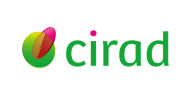Mapping of activities, producers, and certifying agencies of organic agriculture in Brazil
Keywords:
Organic agriculture, Brazil, Certifying agencies, Geographic regionAbstract
This article aims to provide an overview of the geographical distribution of organic agriculture in Brazil, considering certifying agencies, the presence of farmers by region, and the panorama of activities within this agricultural production system. The research adopted a quantitative approach, grounded in the literature, characterized as exploratory and descriptive. Data were collected from the National Registry of Organic Producers of the Ministry of Agriculture, Livestock, and Supply (MAPA), published in March 2023, including information on certifying agencies, the quantity of organic farmers per region in Brazil, organic agricultural activities, and products produced. The results emphasize the importance of incentive programs and public policies to promote organic agriculture in Brazil, with certifying agencies playing a crucial role in ensuring product quality. Their involvement strengthens the production chain and promotes sustainable practices, highlighting the potential of organic agriculture to promote health and preserve the environment. Finally, the research underscores the importance of incentive programs and public policies to boost organic agriculture in Brazil, as well as the crucial role of certifying agencies in ensuring product quality. Strengthening the organic production chain promotes sustainable practices and ensures quality products to consumers, demonstrating the potential of organic agriculture to promote health and preserve the environment.
References
Alves, A. C. O.; Santos, A. L. S. & Azevedo, R. M. M. C. de. (2012). Agricultura orgânica no Brasil: sua trajetória para a certificação compulsória. Revista Brasileira de Agroecologia, 7 (2): 19-27.
Azam, M. S. & Shaheen, M. (2019). Decisional factors driving farmers to adopt organic farming in India: a cross-sectional study. International Journal of Social Economics, 46(4): 562-580
Becker, C. et al. (2020). Processo de regularização da produção orgânica pelos agricultores familiares: um estudo de caso sobre o OCS–Santana do Livramento, RS. Navus: Revista de Gestão e Tecnologia, (10), 75.
Borsellino, V.; Schimmenti, E. & El Bilali, H. (2020). Agri-food markets towards sustainable patterns. Sustainability, 12(6), 2193.
Caldas, N. V.; Anjos, F. S. D.; Bezerra, A. J. A. & Criado, E. A. (2012). Certificação de produtos orgânicos: obstáculos à implantação de um sistema participativo de garantia na Andaluzia, Espanha. Revista de Economia e Sociologia Rural, 50: 455-472.
Campanhola, C. &Valarini, P. J. (2001). A agricultura orgânica e seu potencial para o pequeno agricultor. Cadernos de Ciência & Tecnologia, 18(3): 69-101.
Cidón, C. F.; Figueiró, P. S. &Schreiber, D. (2021). Benefits of organic agriculture under the perspective of the bioeconomy: A systematic review. Sustainability, 13 (12), 6852.
Creswell, J. W. & Creswell, J. D. (2021). Projeto de pesquisa: métodos qualitativo, quantitativo e misto. Porto Alegre: Penso.
Duran, C. A. &Wives, D. G. (2018). Tomada de Decisão e Agricultura: Uma Revisão Recente sobre Agricultura Orgânica. Desenvolvimento em Questão, 16(43): 175-199.
Donaldson, J. A. & Moore, J. D. (2017). Going green in Thailand: Upgrading in global organic value chains. In International Studies Association annual conference, 22-25.
Frison, E. & Rover, O. J. (2014). Entraves para a certificação orgânica do leite numa central cooperativa de agricultores familiares do oeste catarinense. Revista Brasileira de Agroecologia, 9 (2).
Gil, A. C. (2022). Como elaborar projetos de pesquisa. São Paulo: Atlas.
Joseph, S.; Peters, I. & Friedrich, H. (2019). Can regional organic agriculture feed the regional community? A case study for Hamburg and North Germany. Ecological Economics, 164, 106342.
Kononets, Y. et al. (2023). The evolution of organic food certification. Frontiers in Sustainable Food Systems, 7, 1167017.
Laureti, T. & Benedetti, I. (2018). Exploring pro-environmental food purchasing behaviour: An empirical analysis of Italian consumers. Journal of Cleaner Production, 172: 3367-3378.
Lotter, D. W. (2003). Organic agriculture. Journal of Sustainable Agriculture, 21(4), 59-128
Lourenço, A. V.; Schneider, S. & Gazolla, M. (2017). A agricultura orgânica no Brasil: um perfil a partir do censo agropecuário 2006. Extensão Rural, 24(1): 42-61.
Madail, J. C. M.; Belarmino, L. C. & Bini, D. A. (2011). Evolução da produção e mercado de produtos orgânicos no Brasil e no mundo. Revista Científica da Ajes, 2(3).
Martins, A. P. O. et al. (2019). Consumer behavior of organic and functional foods in Brazil. Food Science and Technology, 40: 469-475.
Maniriho, A.; MusabangANJI, E. & Lebailly, P. (2020). Analysis of economic efficiency of small-scale onion production in Volcanic Highlands in Rwanda.MontenegrinJournal of Economics, 16(3).
Mattei, T. F. & Michelon, E. (2021). Panorama da agricultura orgânica e dos agrotóxicos no Brasil: uma análise a partir dos censos 2006 e 2017. Revista de Economia e Sociologia Rural, 59, e222254.
Ministério da Agricultura, Pecuária e Abastecimento (MAPA). (2023). O que são Produtos Orgânicos?. https://www.gov.br/agricultura/pt-br/assuntos/sustentabilidade/organicos/o-que-sao-produtos-organicos
Ministério da Agricultura, Pecuária e Abastecimento (MAPA). (2023). Orgânicos. https://www.gov.br/agricultura/pt-br/assuntos/sustentabilidade/organicos
McCarthy, B. &Schurmann, A. (2018). Risky business: growers’ perceptions of organic and biodynamic farming in the tropics. Rural Society, 27(3): 177-191.
Ministério da Agricultura, Pecuária e Abastecimento (MAPA). (2023). Obter Certificação de Produtos Orgânicos - Produção Primária Vegetal (PPV). www.gov.br/agricultura/pt-br/assuntos/sustentabilidade/organicos
Paschoalino, P. A. T. &Parré, J. L. (2023). Diversificação e produção agrícola no Brasil: Uma análise por modelos espaciais. Revista de Política Agrícola, 32(1): 121.
Richardson, R. J. (2017). Pesquisa social: métodos e técnicas (4th ed.). São Paulo: Atlas.
Sahm, H. et al. (2013). Reversion from organic to conventional agriculture: A review. RenewableAgricultureand Food Systems, 28(3): 263-275.
Santos, L. et al. (2017). Políticas públicas para o comércio de produtos orgânicos no Brasil. Revista de CiênciasAgrárias, 40(2): 447-459.
Sarkar, A. et al. (2022). A bibliometric analysis of sustainable agriculture: based on the Web of Science (WOS) platform. Environmental Science and Pollution Research, 29(26): 38928-38949.
Silva, Á. T. & Silva, S. T. (2016). Panorama da agricultura orgânica no Brasil. Segurança Alimentar e Nutricional, 23: 1031-1040.
Souza, M. A. M. (2001). Certificação de Produtos Orgânicos. Instituto de Economia Agrícola (IEA). São Paulo. www.iea.sp.gov.br/out/verTexto.php?codTexto=260#:~:text=No%20caso%20de%20produtos%20orgânicos,e%20práticas%20da%20agricultura%20orgânica
Published
How to Cite
Issue
Section
License
Copyright (c) 2024 Ananias Francisco dos Santos, Marcia Maria dos Santos Bortolocci Espejo, Caroline Maria da Silva, Guilherme Alves de Souza Andrade

This work is licensed under a Creative Commons Attribution-NonCommercial-ShareAlike 4.0 International License.






















